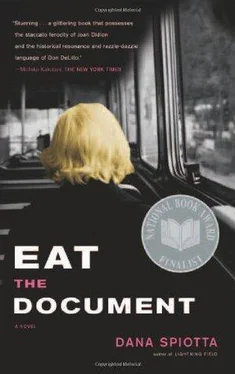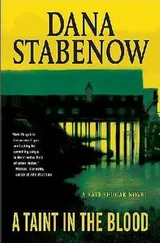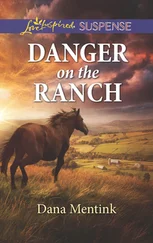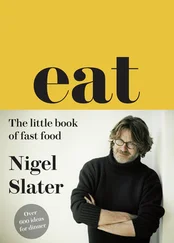Dana Spiotta - Eat the Document
Здесь есть возможность читать онлайн «Dana Spiotta - Eat the Document» весь текст электронной книги совершенно бесплатно (целиком полную версию без сокращений). В некоторых случаях можно слушать аудио, скачать через торрент в формате fb2 и присутствует краткое содержание. Год выпуска: 2006, Издательство: Scribner, Жанр: Современная проза, на английском языке. Описание произведения, (предисловие) а так же отзывы посетителей доступны на портале библиотеки ЛибКат.
- Название:Eat the Document
- Автор:
- Издательство:Scribner
- Жанр:
- Год:2006
- ISBN:нет данных
- Рейтинг книги:3 / 5. Голосов: 1
-
Избранное:Добавить в избранное
- Отзывы:
-
Ваша оценка:
- 60
- 1
- 2
- 3
- 4
- 5
Eat the Document: краткое содержание, описание и аннотация
Предлагаем к чтению аннотацию, описание, краткое содержание или предисловие (зависит от того, что написал сам автор книги «Eat the Document»). Если вы не нашли необходимую информацию о книге — напишите в комментариях, мы постараемся отыскать её.
shifts between the underground movement of the 1970s and the echoes and consequences of that movement in the 1990s. A National Book Award finalist,
is a riveting portrait of two eras and one of the most provocative and compelling novels of recent years.
Eat the Document — читать онлайн бесплатно полную книгу (весь текст) целиком
Ниже представлен текст книги, разбитый по страницам. Система сохранения места последней прочитанной страницы, позволяет с удобством читать онлайн бесплатно книгу «Eat the Document», без необходимости каждый раз заново искать на чём Вы остановились. Поставьте закладку, и сможете в любой момент перейти на страницу, на которой закончили чтение.
Интервал:
Закладка:
But could she even take a stand? Because the truth of it was she wasn’t sure of the tactics they had chosen, or of the consequences. There wasn’t moral clarity. The truth was she even doubted the intentions, the motivations. This was tragic, a great, terrible tragedy, to do something so clearly full of consequence, so irreparable, and then to have such foundational doubt.
She would stare at the rain outside their bedroom window and recite the narrative of what had happened. She considered, as accurately as she could bear, what exactly she, or they, had done and why.
Bobby had taken convincing, hadn’t he? He wanted to make his movies and leave it at that. He was frightened of action. And she convinced him. It was mostly her, wasn’t it?
Bobby had shown the group the latest of his “protest” films. These were meant to be polemical propaganda pieces. Credited to the SAFE collective, the film really was made solely by Bobby. They sat on the floor, four of them, in the dark, as he ran the projector.
The glare of the sun on the street in unforgiving Kodacolor. An old man leaves his house. He walks to his car. Cut to the same old man walking on the street. He squints at the sun. He is unaware of being filmed. He is outside a monolithic International-style building. He enters, and the door closes behind him. We see again, the same thing, in excruciating real time, the old man walk to his car. We see him leave in the morning, squint in the sun. The camera is stalking him. The third time through the filmmaker appears, or a man one supposes is the filmmaker. He approaches the old man with a hand mike.
“Excuse me, Dr. Fieser?”
The old man looks at him and scowls. He shakes his head.
“Can I ask you a question?”
The old man speeds up.
“Why would you invent napalm? Why?”
The old man stops and turns to the filmmaker. He stares at the microphone and then speaks.
“I am a scientist. I solve problems. I don’t ask what use they are put to. That is not my job. That is the politician’s job.”
“What domestic use did you imagine jellied gasoline could possibly have?”
“I am not responsible. Leave me alone.” The man stumbles and tries to escape into his house. The camera follows, and you can see his face as the filmmaker shouts at him from off camera.
“Pauling refused to make the bomb.”
The old man is trying the door to his house. He is fumbling the keys. Still, the filmmaker is talking.
“Do you think the employees of the Topf Corporation in Wiesbaden in Germany during the war should have asked why they needed to develop hydrocyanic acid in increasingly large quantities? Should they have betrayed any curiosity about why their employer was building larger and larger crematoriums for the government? Do you think these Germans had an obligation to ask, What for?”
The filmmaker follows the old man in close-up and is upon him at his door. He thrusts a Life magazine in his face. It has the famous photo of a girl running. She is naked and in agony. Napalm is searing her skin.
The old man glances at the photo. “Yes, I’ve seen that picture. It is terrible.”
The old man glances down at his retrieved keys in his hands and pauses. Finally he looks up at the camera. The camera stays on his face for several minutes. It is a weary, defeated face. He doesn’t respond but turns at last back to the keys, unlocks the door and enters his house.
The film shows various ordinary details of the house: The wreath surrounding the door knocker. The woven welcome mat. The glow encased in a rectangle of plastic for the doorbell. The neatly trimmed lawn that edges several flower beds. The oval slates making a footpath. Some garden gloves. Then the film ends.
There was a brief pause as the film click-clicked until the projector was rethreaded and the film rewound. Their friend Will spoke.
“You make us pity him.”
Bobby turned off the projector and flipped the lights back on. He shrugged.
“He looks haunted, pathetic, old,” Mary said.
“He is haunted, pathetic, old.”
“But he bears responsibility for atrocities, and he won’t admit it. He doesn’t even desire our sympathy. You hold the camera on him. You dwell on his shakiness. You let his humanity play on us,” Mary said.
“Yeah, you seem like a tiresome asshole, a bully, and he seems like a victim,” Will said.
“That’s the truth. I showed the truth. The truth is complicated. More complicated than we would like,” Bobby said.
“But are you creating a polemic, a tool, or are you on some ego-artist trip?” Will said.
“Your film makes things complicated, and that doesn’t inspire action, that inspires despair,” Mary said. “Besides, who says that’s the truth? That’s sentimentality. If he is blameless, then who do we assign blame to? Aren’t all individuals human? Can’t you portray Nixon and Kissinger as lonely, misguided men leading lives underwritten by existential desperation? Is that what the world needs right now? Empathy for all the powerful, careless old men?” Mary became angry as she spoke.
“I see your point,” Bobby said.
Later, by themselves, he brought it up. “I feel outrage. I feel anger. But I am undone by sadness. When I am behind the camera, I feel a desire to understand and empathize. To undercut my own points. The truth is, that’s when it becomes interesting.”
Mary nodded, but she didn’t really listen. She was waiting for her chance to speak.
“You have to decide,” she said. “You are describing the pursuit of art. Maybe it is a way to make you feel more comfortable in the world. Maybe it is beauty, or even integrity. But meanwhile that is a privilege. A privilege we enjoy at what cost? People are dying and can’t afford that kind of empathy for all sides. Do you think the warmongers and fascists and corporate munitions suppliers waste time feeling empathy? Do they second-guess themselves?”
Bobby leaned back and put his head on her lap. He looked up at her as she continued.
“The question is, do we want to leave action to the brutes of the world? This is the moment to decide. There are some inherent problems built into acting. It lacks perfection. But I believe we must fight back, or we will feel shame all our lives. We, the privileged, are more obligated. It is a moral duty to do something, however imperfect.”
She stopped. She put her hand in his hair.
“If we don’t do something, all our lives we will feel regret.”
Two days later, just as she began to relent, Bobby came to her with a plan. And the home and second-home addresses of all the board members from all the relevant corps: Dow Chemical, Monsanto, General Dynamics, Westinghouse, Raytheon, DuPont, Honeywell, IBM and Valence Chemical. He carefully worked out the timing, the execution, the communiqués to the press.
But now Mary developed doubts. She started to wonder if he had been right in the first place, that denying the complexity of the world made you as bad as they are. Even if you do act, you may be guilty of the wrong motive — vanity, or self-righteousness. Or maybe you will pick the wrong tactic. Perhaps your analysis was incorrect. You could be making things worse, more polarized. And finally, maybe they shouldn’t relinquish their purchase on the humanity of everyone. Maybe that was the very moral line that saved them from becoming the people they despised and judged. She could argue it either way, with equal conviction. But there was no point in discussing it again. She knew he wasn’t looking back. He was now a force in motion. She watched as everything came together. And then she helped everything come together. This was the power of a couple — their doubts occurred at different times and canceled each other out, making them much more fearless as a pair than they would ever be on their own. And that’s how a life changes — it could go either way, and then it just goes one way.
Читать дальшеИнтервал:
Закладка:
Похожие книги на «Eat the Document»
Представляем Вашему вниманию похожие книги на «Eat the Document» списком для выбора. Мы отобрали схожую по названию и смыслу литературу в надежде предоставить читателям больше вариантов отыскать новые, интересные, ещё непрочитанные произведения.
Обсуждение, отзывы о книге «Eat the Document» и просто собственные мнения читателей. Оставьте ваши комментарии, напишите, что Вы думаете о произведении, его смысле или главных героях. Укажите что конкретно понравилось, а что нет, и почему Вы так считаете.












